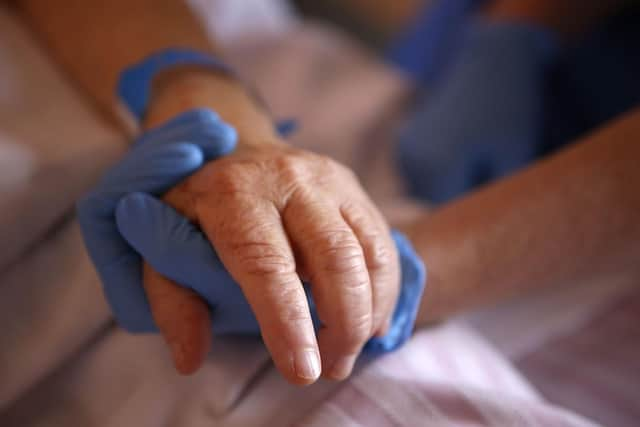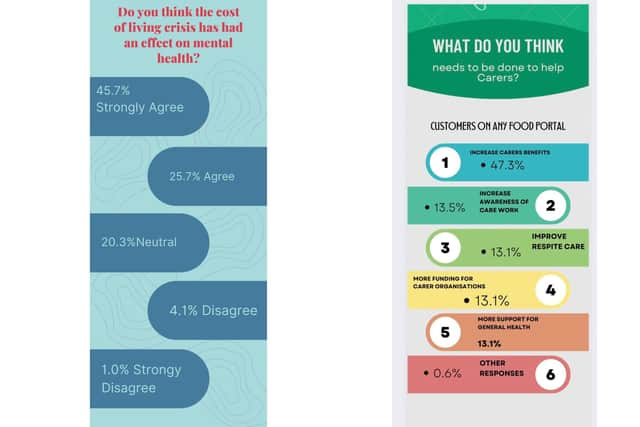Ripon care workers ‘battle burnout’ and say national wage not enough to meet living costs
and live on Freeview channel 276
A survey conducted by Surewise, leading provider of carers insurance in the UK, found that 70% of care workers are not confident they will make it financially through the next year, whilst over 57% were paid under the NLW at December 2022.
In an interview, a Ripon senior carer (Miss A), who asked not to be identified, revealed how the industry is suffering and how it is affecting those who want to remain in the sector.
Advertisement
Hide AdAdvertisement
Hide AdMiss A said: “Money worries have a knock on effect on everyday life.


“One member of staff picked up 80 hours overtime across a month, just to meet rising costs.”
Whilst wages remain low, the skills required to provide a quality care service are demanding .
Miss A said: “It can be exhausting, you need mountains of patience, problem solving skills and stress management, without losing compassion for a person under pressure.
Advertisement
Hide AdAdvertisement
Hide Ad“You can always see the difference when someone just genuinely cares.


“Staff come and go within months.
“They see the wage, then compare it to the workload, which just doesn’t equate.
“They think, I can get paid the same wage stacking shelves at a supermarket with more sociable hours and less stress, so they just go and do that.
“You can’t blame them either.”
The survey highlighted that 65% of carers are cutting back on daily essentials with a further 32% dipping into their savings.
Miss A said: “In the last year I’ve halved my savings.
“It’s going down and down, it's pushing people too far.
Advertisement
Hide AdAdvertisement
Hide Ad“I would love to stay in the sector, but things need to turn around.”
Carers work unsociable hours which lead to being cut off from social circles, including close friends and family.
She said: “The unsociable hours can make it difficult to spend quality time with family.
“We might finish at 10pm and return at 7am.
“If you’ve got a family you can go days without seeing them.”
Advertisement
Hide AdAdvertisement
Hide AdThe survey also found that half of carers agreed the cost of living crisis has had a negative impact on their mental health.
Whilst many take overtime to meet rising costs, others take extra shifts where homes struggle to keep up staff levels.
Miss A said: “It’s not just the finance side of things.
“We had a young member of staff, who had a great social life, energetic and smart.
“We became short staffed.
“He began working four or five 13 hour shifts in a row.
“Eventually, he had to take a break from work due to mental health.
Advertisement
Hide AdAdvertisement
Hide Ad“It's a combination of needing the money and wanting to be there for the team when the home is struggling for staff.
“The recovery has cost him physically and financially.
“From my experience, most members of staff including management are all just battling burnout.
“With most people feeling like they can’t do it anymore, and without any incentive.
“We keep turning up because of the people.
“It’s not fair on them, they deserve the best care we can give.
Advertisement
Hide AdAdvertisement
Hide Ad“Everyone has a cut off point but there are so many wonderful elements to the job.
“Just being able to see growth in people.
“Knowing you’ve improved on aspects of their lives, there’s nothing really quite like it.”